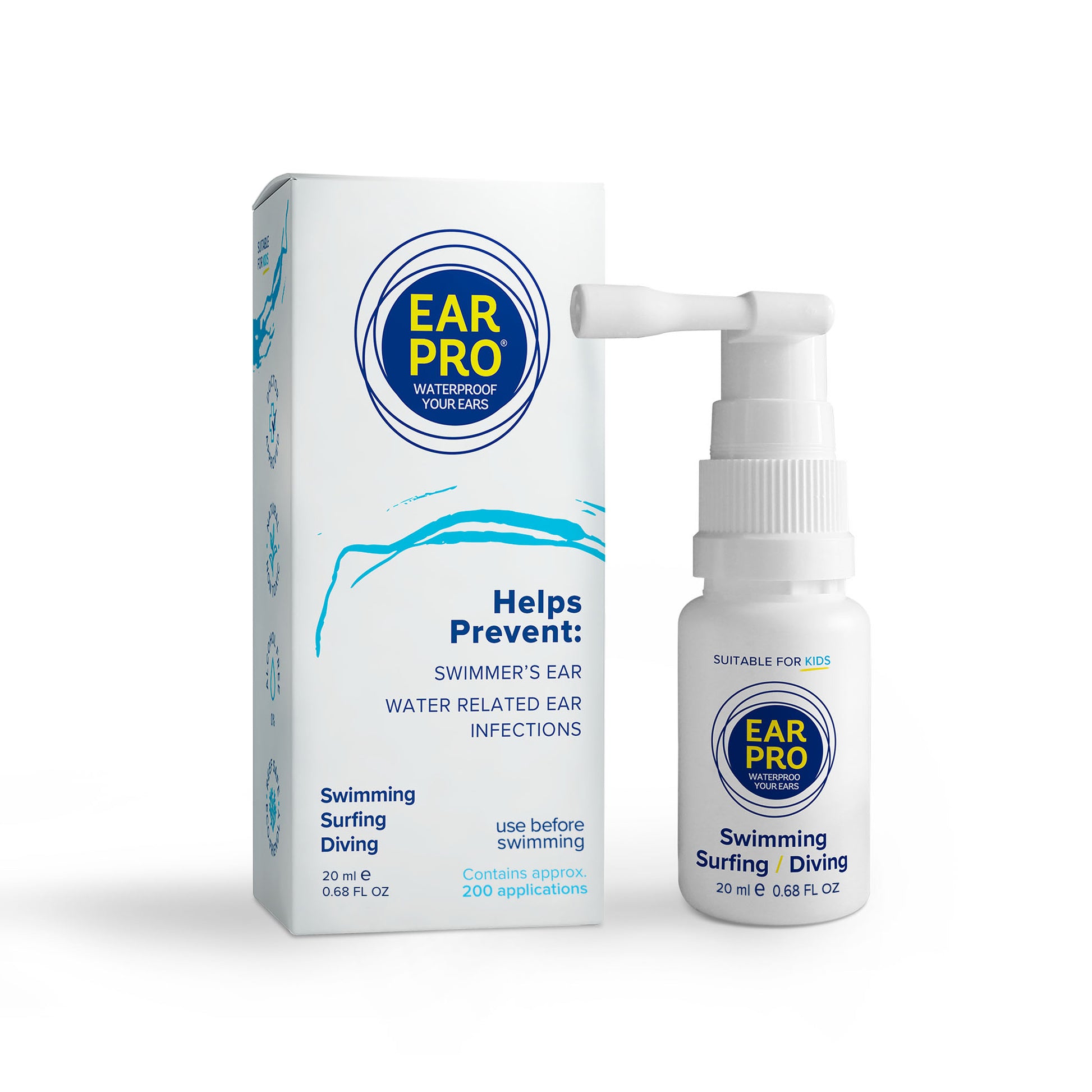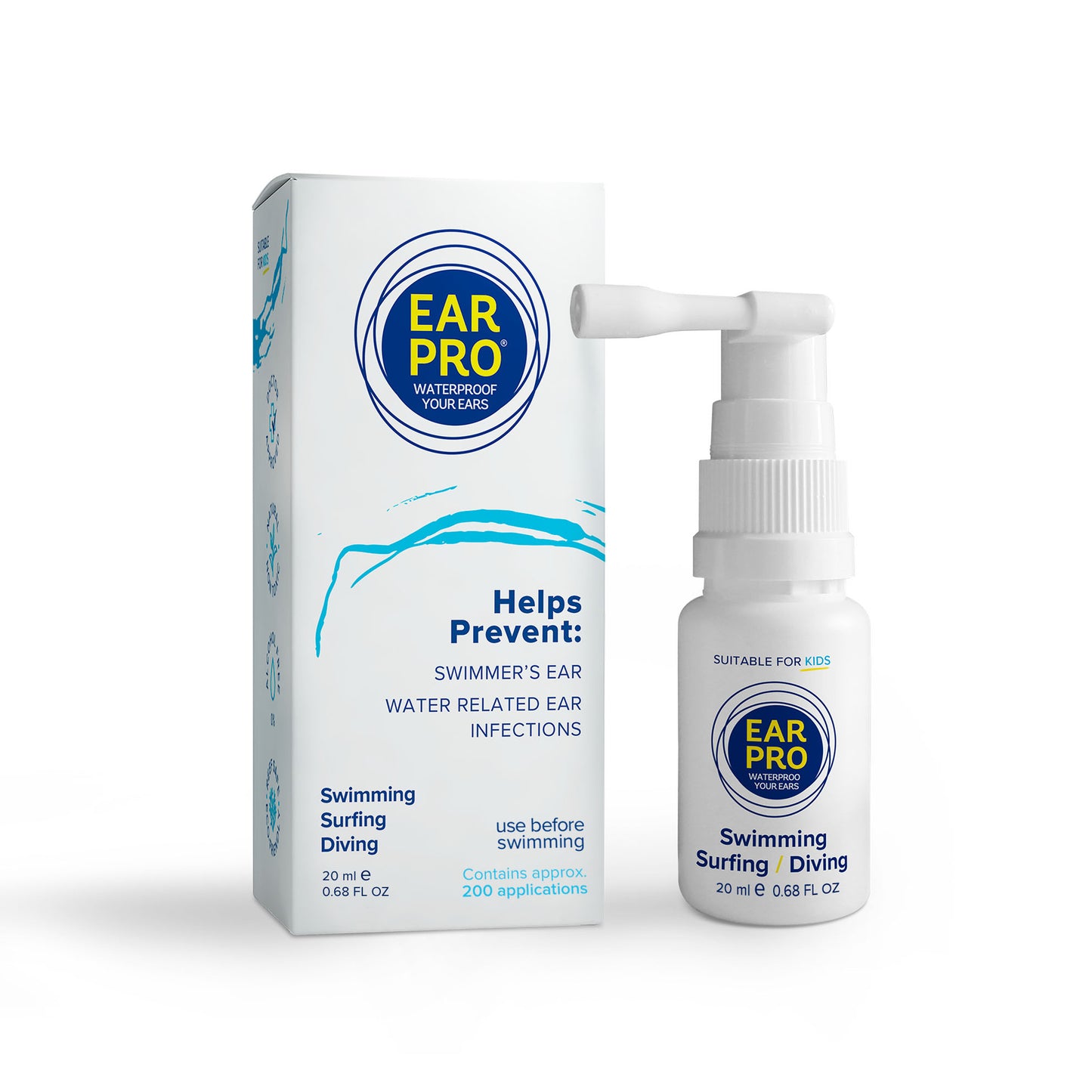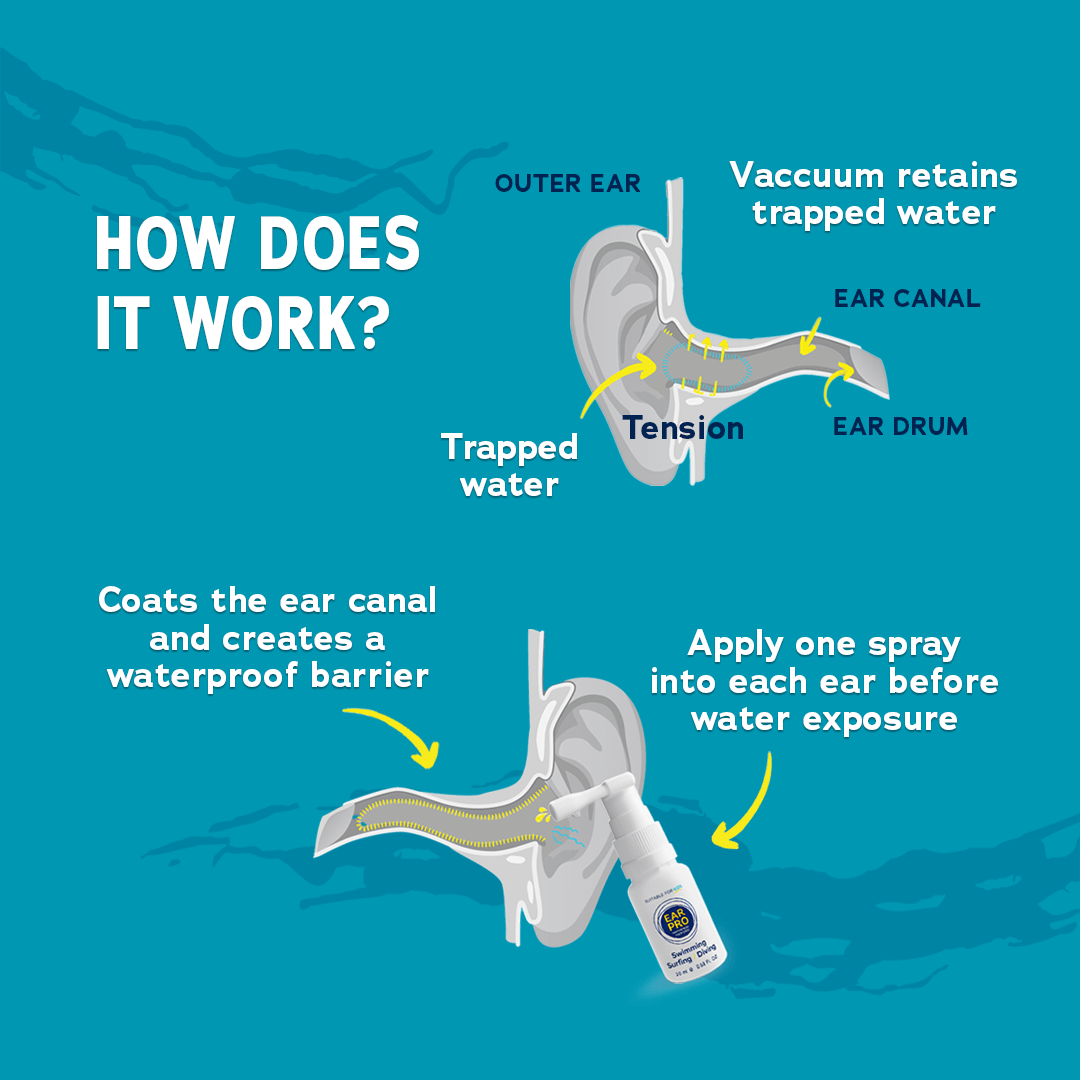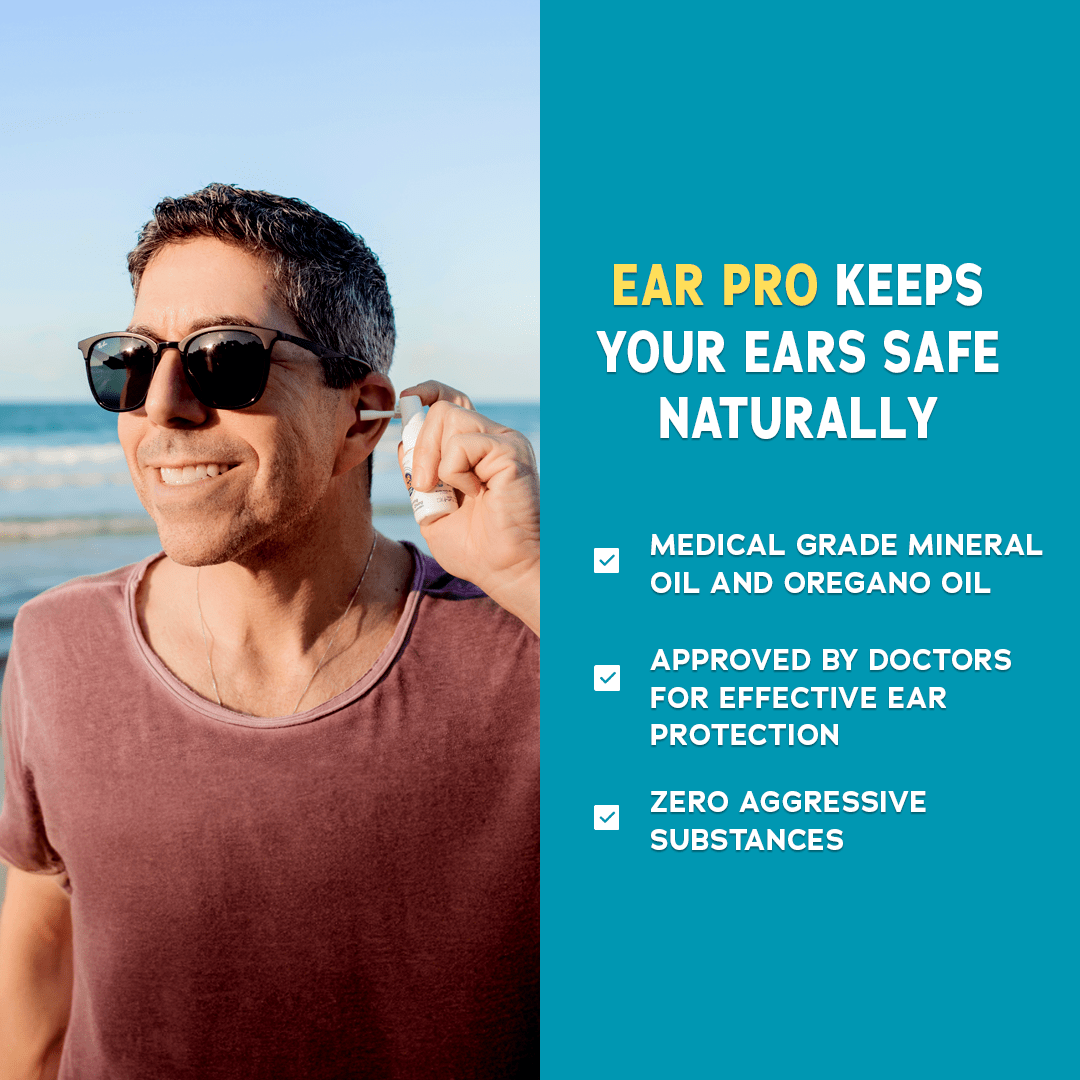Have you ever finished a refreshing swim or a relaxing shower only to find yourself with clogged ears?
That muffled sensation might mean you have water trapped in your ear. Learning how to get water out of your ear is crucial for maintaining ear health and preventing infections.
In this comprehensive guide, we'll explore effective methods to remove water from your ears, discuss preventive measures, and highlight the importance of ear sprays in keeping your ears dry and healthy.
Table of Contents:
- Common Causes of Water Getting Trapped in the Ear
- Symptoms of Water Trapped in the Ear
- How to Identify if Water is Trapped in Your Ear
- Effective Home Remedies to Get Water Out of Your Ear
- When to See a Doctor
- Preventive Measures
- Myths vs. Facts About Water in the Ear
- Conclusion
- Frequently Asked Questions
Common Causes of Water Getting Trapped in the Ear
Water can become trapped in your ear canal during various activities, including:
- Taking showers or baths
- Engaging in water sports like surfing or diving
-
Water trapped in the ear after swimming, especially after prolonged sessions or diving
- Sweating while wearing earbuds
Understanding these causes is the first step in learning how to get water out of your effectively.
Symptoms of Water Trapped in the Ear
Understanding how to relieve ear discomfort from water is crucial for quick relief and preventing complications. Common signs of clogged ears include:
- A feeling of fullness or pressure in the ear
- Muffled hearing
- Discomfort or mild pain
- A sloshing sensation when moving your head
How to Identify if Water is Trapped in Your Ear
If you suspect you have water in your ear, it's important to know how to get water out of your ear safely. Try these simple techniques to identify if water is trapped:
- Gently tug on your earlobe while tilting your head to the side
- Move your jaw by yawning or chewing gum
- Listen for a subtle crackling or popping sound when you move your head
Effective Home Remedies to Get Water Out of Your Ear
Now that we've identified the problem let's explore some safe and effective ear water removal tips:
-
The Gravity Method: This is one of the most common ways to get water out of the ear in a safe way. Tilt your head to the side with the affected ear facing downward. Gently pull on your earlobe to straighten the ear canal, allowing water to drain naturally.
- Create a Vacuum Cup: Place your palm over your ear, tilt your head sideways, and gently press and release your hand to create suction. This method can help draw water out of the ear canal.
- Use a Hair Dryer: Set your hair dryer to its lowest, coolest setting and hold it about a foot away from your ear. The gentle airflow can help evaporate trapped water.
- Try the Valsalva Maneuver: Take a deep breath, close your mouth, pinch your nostrils shut, and gently exhale. This technique can help open the Eustachian tubes and relieve pressure.
-
Ear Drying Spray: Alcohol-free ear sprays are specially formulated to safely evaporate excess water in the ear canal without irritation.
Apply a few drops as directed on the package, then gently tilt your head to let the solution drain out.
These sprays effectively prevent moisture buildup and inhibit bacterial growth without the potential irritation or drying effects associated with homemade alcohol-based remedies.
- Use Olive Oil: For natural ear fluid removal remedies, consider using olive oil. Place a few drops of warm olive oil in your ear, wait a few minutes, then tilt your head to let it drain out. This can help lubricate the ear canal and ease the water out.
When to See a Doctor
While these home remedies for blocking or getting water out of your ear are often effective, it's important to know when professional help is needed. Seek medical attention if:
- You experience severe pain or discomfort
- Symptoms persist for more than a few days
- You develop a fever or notice discharge from your ear
These could be signs of an ear infection, such as swimmer's ear, which may require antibiotic treatment.
Preventive Measures
Learning techniques for clearing ear canal water naturally can help you avoid discomfort and potential infections. Here are some tips for preventing ear water blockage:
-
Use Earplugs: Invest in a good pair of swimming earplugs to keep water out of your ears during water activities.
-
Dry Your Ears Thoroughly: Gently dry your outer ears with a soft towel after swimming or bathing. Tilt your head to each side to allow water to drain naturally.
- Consider Using Ear Sprays: Alcohol-free ear sprays, like Ear Pro, can be highly effective in preventing water from entering your ear. These mineral oil-based sprays create a protective barrier in the ear canal without disrupting the natural pH balance.
Myths vs. Facts About Water in the Ear
While discussing how to get water out of your ear, it's important to separate fact from fiction. Let's clear up some common misconceptions surrounding this issue:
|
Myth |
Fact |
|
Cotton swabs are effective for drying ears. |
Cotton swabs can push water deeper into the ear canal and potentially cause damage. Avoid using them for ear drying. |
|
Swimmer's ear is just a mild condition that goes away on its own. |
Swimmer's ear is a bacterial infection that often requires antibiotic treatment. |
|
Earbuds are the best solution for preventing water entry. |
While earbuds can be effective, they may become uncomfortable during prolonged use. Ear sprays offer a more comfortable alternative for long-term protection. |
Conclusion
Learning how to get water out of your ear is essential for maintaining ear health and preventing infections.
Ear Pro's easy-to-use spray applicator ensures that you can apply it quickly and effectively before any water activity.
Ear Pro provides long-lasting comfort and protection unlike earbuds, which can be uncomfortable during prolonged use. Its natural ingredients such as mineral oil, offer antimicrobial properties that further safeguard your ears against potential infections.
Don't let the fear of water in your ears keep you from enjoying your favorite activities. With these tips and the right ear protection, you can dive into life with confidence and comfort.
FAQs
1. How long does it take for water to come out of your ear naturally?
In most cases, water trapped in your ear will naturally drain within 24 to 48 hours. However, if you're experiencing discomfort, you can try the home remedies mentioned earlier to speed up the process.
2. What happens if you can't get water out of your ear?
If water remains trapped in your ear for over a few days, it can lead to swimmer's ear or other infections. You might experience increased pain, muffled hearing, or even fever. If home remedies aren't working, it's best to consult a healthcare professional.
3. Can water in the ear cause infection?
Yes, water trapped in the ear can create a moist environment ideal for bacterial growth, potentially leading to infections like swimmer's ear. This is why it's crucial to know effective ear water removal tips and to dry your ears thoroughly after water exposure.
4. How do you drain water from your middle ear?
Water typically gets trapped in the outer ear canal, not the middle ear. If you're experiencing fullness in your middle ear, it's likely due to fluid buildup from a cold or allergy, not swimming or bathing. In this case, techniques like the Valsalva maneuver or yawning might help. However, persistent middle ear fluid should be evaluated by a doctor.










